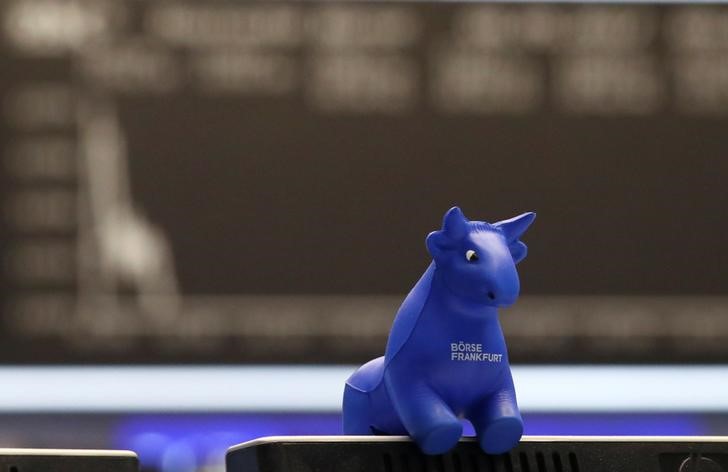By Peter Nurse
Investing.com - European stock markets traded lower Thursday, as investors digested weak Chinese inflation data, more comments from Fed head Jerome Powell as well as fresh concerns over the health of Credit Suisse .
At 03:45 ET (08:45 GMT), the DAX index in Germany traded 0.1% lower, the CAC 40 in France dipped 0.4% and the FTSE 100 in the U.K. fell 0.6%.
Chinese inflation data released earlier in the session pointed to a sluggish economic recovery in the country, the second largest economy in the world and a major export market for European companies.
Also weighing on sentiment in Europe were the comments from U.S. Federal Reserve Chairman Jerome Powell on the second day of his testimony to Congress on Wednesday.
Powell affirmed his earlier message that interest rates would have to go higher and possibly in larger chunks to tame inflation, although he was at pains to point out that any moves, including March’s likely hike, would be data-dependent.
Back in Europe, Credit Suisse (SIX:CSGN) stock fell 3% after the embattled Swiss lender announced earlier Thursday that it will delay the publication of its 2022 annual report after it received a "late call" from regulators at the U.S. Securities and Exchange Commission on Wednesday.
The Swiss lender said the SEC had raised questions over the technical assessment of previously disclosed revisions to its consolidated cash flow statements in 2020 and 2019, as well as related controls.
Aviva (LON:AV) stock rose 3.7% after the U.K. asset manager and insurer announced a new £300 million (£1=$1.186) share buyback and said it will pay out higher dividends in future as the broad rise in interest rates last year bolstered its pension business.
Deutsche Post (ETR:DPWGn) stock fell 1% after the German logistics company flagged that it expects to report a decline in profit in 2023, warning of challenges stemming from an uncertain economic environment.
Oil prices traded largely unchanged Thursday, nursing recent losses as disappointing Chinese economic data and the potential for further U.S. interest rate hikes raised doubts over crude demand growth this year.
Chinese factory gate prices shrank more than expected in February, data showed Friday, suggesting manufacturing activity in the largest crude importer in the world was running well below full capacity.
Official data from the Energy Information Administration, released Wednesday, showed that U.S. crude inventories fell 1.7 million barrels last week, shrinking for the first time in 10 weeks.
By 03:45 ET, U.S. crude futures traded 0.2% lower at $76.47 a barrel, while the Brent contract fell 0.2% to $82.47. Both benchmarks were down almost 4% so far this week.
Additionally, gold futures rose 0.1% to $1,820.15/oz, while EUR/USD traded 0.1% higher at 1.0551.
